Coronavirus: Melbourne shutdown as nation slips into economic coma
At 8.55am on the steps of Melbourne’s Flinders Street Station it was more Sunday morning than rush hour, as the economic shutters went down on a once brilliant economy.
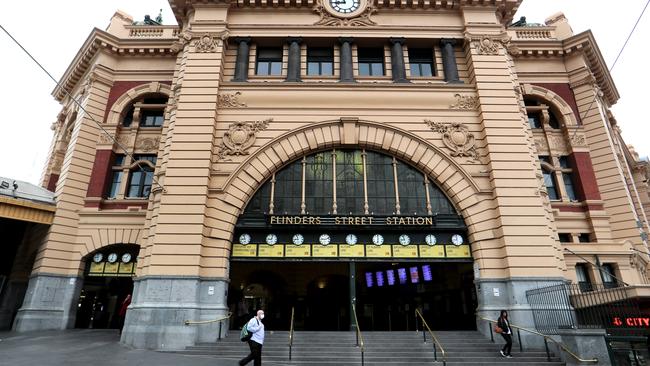
Australia fell into an economic coma at 8.55am on the steps of Flinders Street Station.
Barely a soul made their way under the clocks in Melbourne’s CBD and across the road at Federation Square it was the same alarming and melancholy story.
A flood of hundreds of people would normally be pouring into Swanston St doing the 9-to-5 thing.
This morning the commuters came one by one. Drip, drip, drip.
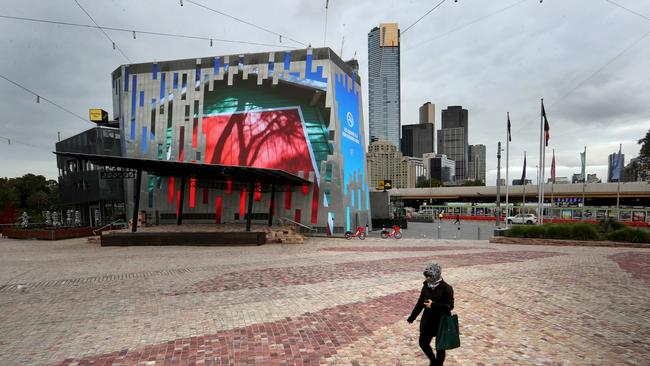
For every shop that was open, five had locked the front door.
For those that were open it was a triumph of optimism over COVID-19 reality.
Not even Young and Jackson’s, the hotel with the nude called Chloe on its walls, was open, depriving the lost and lonely of a 7am heart starter.
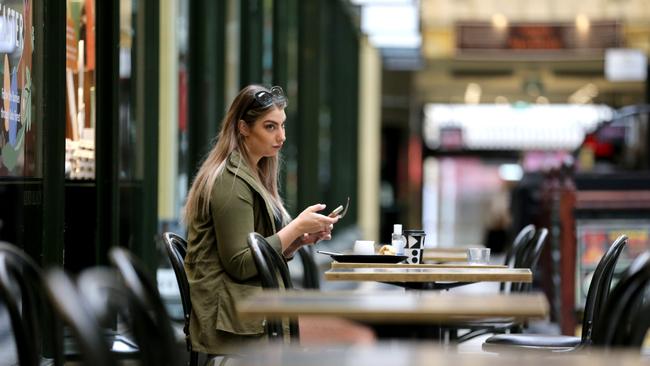
A workman peered out of a first floor window, looking somewhat bemused by the lack of people crossing Flinders Street.
This was more Sunday morning than Monday peak hour.
The CBD wasn’t entirely deprived of life, but the numbers were so low as to be bewildering.
Vincent Chaidir is a neuroscience student at Melbourne University. He was standing outside Myer at 9.30am holding a pack of 10 Sorbent Silky White rolls.
Chaidir couldn’t get the toilet paper in Footscray, in Melbourne’s inner west, and had to brave the CBD to bolster his food supply.
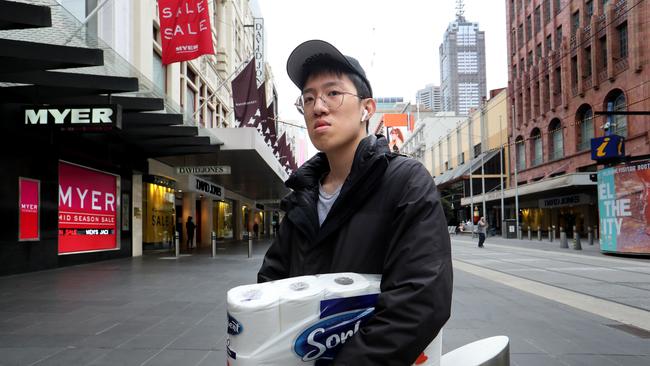
``I feel like the measures are slow,’’ the 21-year-old student from Jakarta said of Australia’s response to the pandemic.
``We are taking too much time too.’’
The inevitable is happening as those with homes stay home, leaving the poor and dispossessed to sleep on the streets and battle their mental illnesses in public.
It’s only going to get worse for the poor as the economic shutters go down on a once brilliant economy.
Rough sleepers can be found in increasing numbers in the city and even on Bridge Rd in Richmond, once the defacto capital of inner city retailing.
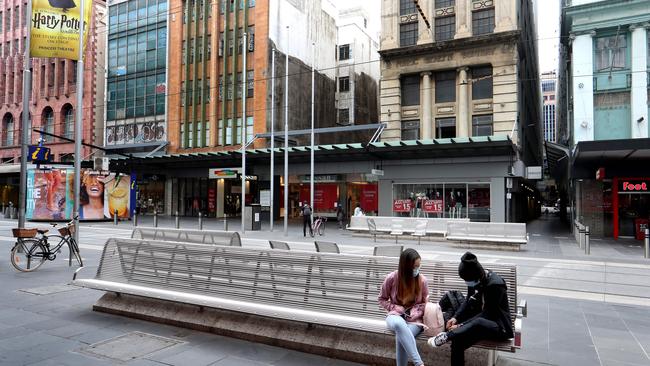
For the owners of the major department stores it must be utter hell working out what to do.
Some of the big shops didn’t even come to play today.
But Myer was having a crack and so was, further down the food chain, Subway and 7-Eleven.
Christine Tyrrell works at David Jones. She waited patiently on a seat at the front of the store for the main doors to swing open.
She couldn’t believe how few people had been on her train this morning from Lara, near Geelong.
Six carriages down to three and there was still a seat for anyone who wanted one.
``I’ve got my concerns, I’m not a panic buyer,’’ she said. ``I am an asthmatic. I’ve got bills to pay.’’
``I’ve got a lot of friends who are out of work. In hospitality, that sort of thing. It is worrying.’’
Melbourne’s global tourism reputation has grown in part on its unique laneway commerce, where food meets fashion and graffiti is cool.
At Degraves Street, shop owners were utterly bewildered about when they were meant to open, when they were meant to close and what they were allowed to serve.
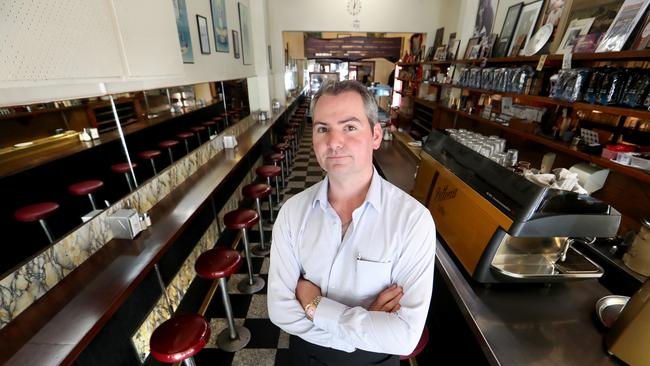
``Do you know what we are meant to do?’’ one woman asked as she poured a hot chocolate.
Another turned up equally unaware of what the new rules were.
``No idea,’’ she said.
Meanwhile, at the eastern end of Bourke Street Mall, a man or woman of faith had tethered an old bike to a stand, urging those seeking Christian guidance to give them a call.
They left a mobile number.
``Let God speak to you,’’ the sign implored.
No-one answered.


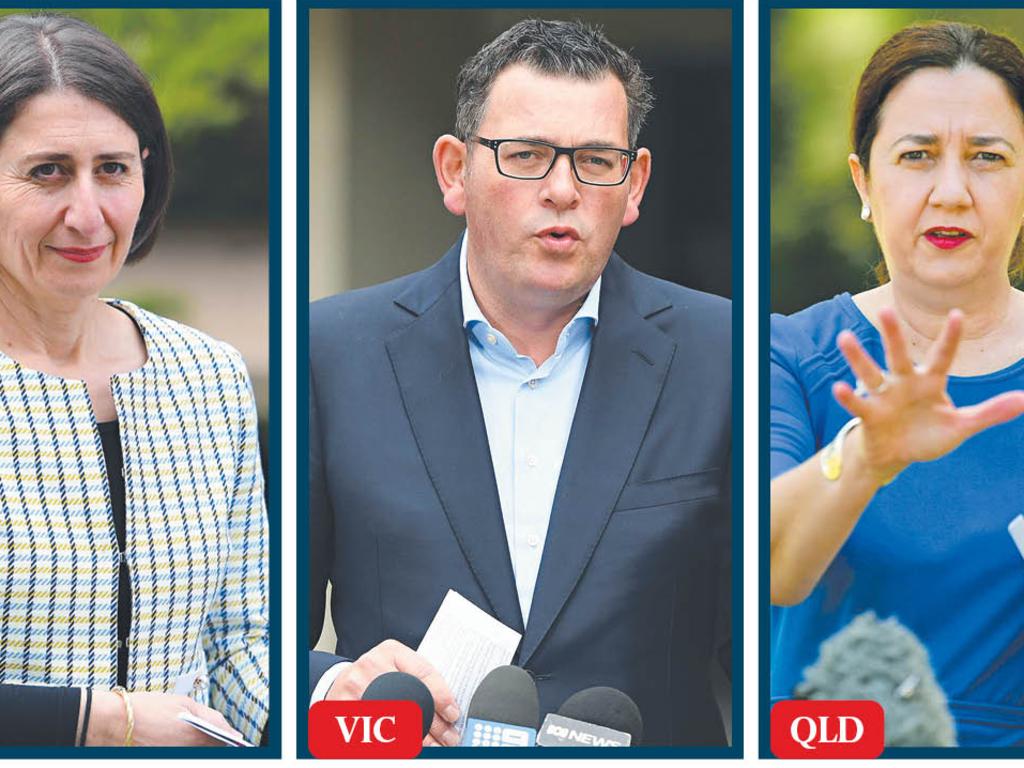

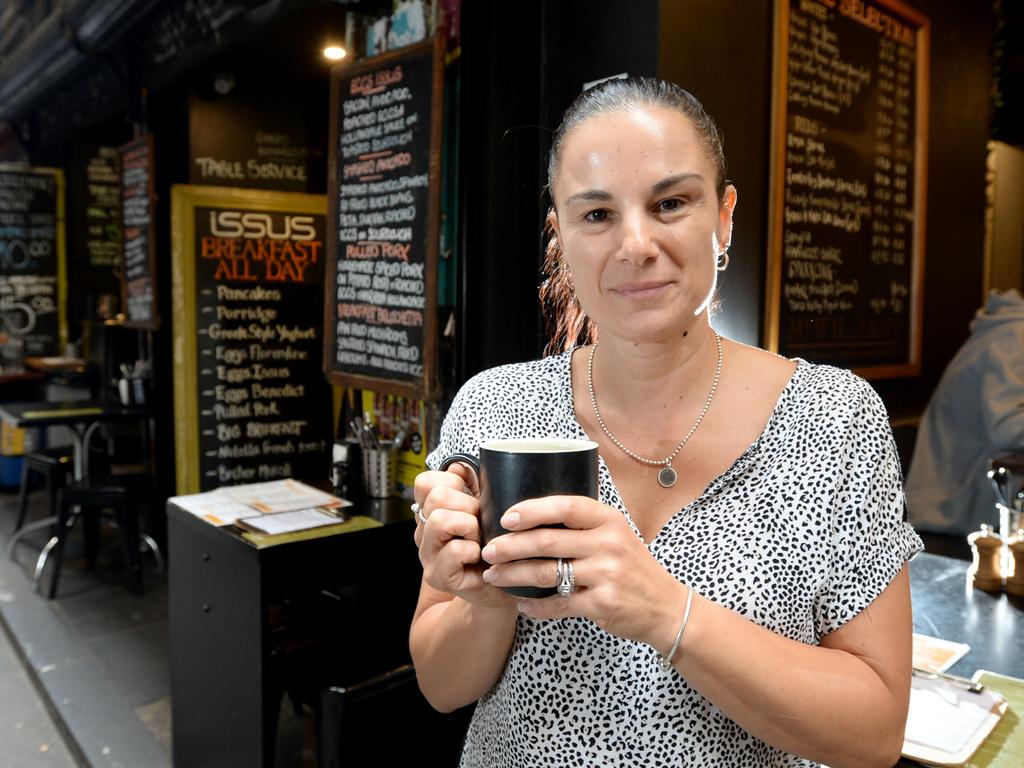


To join the conversation, please log in. Don't have an account? Register
Join the conversation, you are commenting as Logout